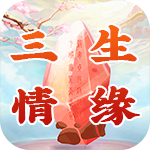1. 用英文表達的中國傳統文化
Today, the world belongs to many different nationalities and races. Different races have different cultures and thus causing a cultural difference. For example, in China, the dragon is a symbol of power. In the past, emperors wore clothes patterned with dragons. However, in European countries, the dragon represents evil. This is what we call cultural difference. Regarding cultural difference, we should learn and understand because only then we can become more knowledgeable and well-informed.
The saying, Chinese people are the offspring of the dragon came from the ancient totem and tales.
It is said that before Huang Di's unification of central plains in China, the totem symbol for China was the bear.
After unification of the tribes, Huang Di decided to use a new form of totem; it is called Long—which means dragon. The head of the original bear and the body of a snake forms it the dragon. In fact the totem of the dragon is the combination of the father and mother tribe of Huang Di. The image of the dragon shows the history of Chinese ethnicity and the unity of Chinese people.
Then the image of dragon began to appear in a lot of pictures and form the characters. People can find the character of dragon in the ancient remains of Java and the image of the dragon in the ancient pot chips. Not long ago the archeologists found two pottery fragments in Liaoning province. One is the moving dragon and the other is stagnant. The images are very vivid in which the scales of the dragon are extremely clear.
Since the dragon became the totem of Chinese, Chinese nation is connected with dragon. Therefore,the tale for Yan Di appeared. It said that Yan Di and Yao were all born because of the dragon. If the ancestor of China is all born for the dragon, the Chinese are the nterments of the dragon.
是關于中國傳統龍文化的!
2. 關于中國傳統文化的英語作文
The information revolution, the development of mass media and the achievements in science and technology have doubtlessly ushered us in a rapidly progressing society, where we may have no time to talk about our traditional culture. In the city, no one can escape from the fast pace. We eat the popularized fast food and enjoy the popularized "fast food" culture. Since we get so used to such fast things that many traditional things have been neglected, some people believe that the traditional culture will gradually be lost, but I think it will never be lost. Although entertainments are in abundance nowadays, traditional cultures still continue to dominate. We still regard going to a concert as a luxury. Many classic books touch a string from generation to generation in spite of time and space. And we are still moved by the inspirational spirits of our great ancestors.Traditional festivals remind us of our disposition to the traditional culture. Our relief in traditional culture gets ready to revive at any time. To some traditional cultures that are on decline, we have taken active measures to conserve them. Experts have come up with proper advice on protecting such cultures. Many volunteers have dedicated themselves to studying them. First and foremost,more and more people have discerned the importance of the traditional culture. Therefore, we are sure that our efforts will lead to a brilliant future. If a culture wants to gain an eternal life, it should change itself to cater to the people in its age. So does our traditional culture. Traditional cultures adhering to modern means appear rigorous. For example, we make CDs for classic music so that it can not only meet modern needs but also spread further and more successfully in the modern world. The appearance of traditional culture changes, but the essence will never change and will be well accepted. There is no need to worry about whether our traditional culture will be lost. It is an important heritage of the whole human race. No culture, no mankind. We cherish the traditional culture as we cherish our blood in our body. The traditional culture lies in life, forever continuing.。
3. 中國傳統文化的英語作文
Culture of China The Culture of China is home to one of the world's oldest and most complex civilizations. China boasts a history rich in over 5,000 years of artistic, philosophical, political, and scientific advancement. Though regional differences provide a sense of diversity, commonalities in language and religion connect a culture distinguished by such significant contributions such as Confucianism and Taoism. Confucianism was the official philosophy throughout most of Imperial China's history and strongly influenced other countries in East Asia. Mastery of Confucian texts provided the primary criterion for entry into the imperial bureaucracy. With the rise of Western economic and military power beginning in the mid-19th century, Western systems of social and political organization gained adherents in China. Some of these would-be reformers rejected China's cultural legacy, while others sought to combine the strengths of Chinese and Western cultures. China is a unified nation consisting of many different ethnic groups. Fifty-six different ethnic groups make up the great Chinese national family. Because the Han people accounts for more than ninety percent of China's population, the remaining fifty-five groups are generally referred to as "ethnic minorities." Next to the majority Han, the Mongolian, Hui, Tibetan, and Uygur peoples comprise the largest ethnic groups. Although China's ethnic minorities do not account for a large portion of the population, they are distributed over a vast area, residing in every corner of China. Particularly since the implementation of China's opening and reform policy, the central government has increased investment in minority areas and accelerated their opening to the outside world. This has resulted in an upsurge of economic development in these areas. Each of China's ethnic minority groups possesses a distinctive culture. The Chinese government respects minority customs, and works to preserve, study, and collate the cultural artifacts of China's ethnic minority groups. The government vigorously supports the development of minority culture and the training of minority cultural workers, and fosters the development of traditional minority medicine. The relation among China's ethnic groups can be described as "overall integration, local concentration, mutual interaction." Concentrations of ethnic minorities reside within predominantly Han areas, and the Han people also reside in minority areas, indicating that there has been extensive exchanges among China's ethnic groups since ancient times. With the development of the market economy, interaction among ethnic groups has become even more active in the areas of government, economics, culture, daily life, and marriage. Linked by interdependence, mutual assistance, and joint development, their common goals and interests creating a deep sense of solidarity, China's ethnic groups resemble a great national family, together building Chinese civilization.。
4. 中國傳統文化 英語作文
這些東西都可以再網上查到!關于長城的傳說 In the north of China, there lies a 6,700-kilometer-long (4,161-mile-long) ancient wall. Now well-known as the Great Wall of China, it starts at the Jiayuguan Pass of Gansu Province in the west and ends at the Shanhaiguan Pass of Hebei Province in the east. As one of the Eight Wonders in the world, the Great Wall of China has become the symbol of the Chinese nation and its culture. Lots of beautiful legends and stories about the Great Wall took place following along the construction, and since that time these stories have spread around the country. Those that happened during construction are abundant, such as Meng Jiangnu's story and the legend of the Jiayuguan Pass. Meng Jiangnu's story is the most famous and widely spread of all the legends about the Great Wall. The story happened during the Qin Dynasty (221BC-206BC). It tells of how Meng Jiangnu's bitter weeping made a section of the Great Wall collapse. Meng Jiangnu's husband Fan Qiliang was caught by federal officials and sent to build the Great Wall. Meng Jiangnu heard nothing from him after his departure, so she set out to look for him. Unfortunately, by the time she reached the great wall, she discovered that her husband had already died. Hearing the bad news, she cried her heart out. Her howl caused the collapse of a part of the Great Wall. This story indicates that the Great Wall is the production of tens of thousands of Chinese commoners. Another legend about the Jiayuguan Pass tells of a workman named Yi Kaizhan in the Ming Dynasty (1368BC-1644BC) who was proficient in arithmetic. He calculated that it would need 99,999 bricks to build the Jiayuguan Pass. The supervisor did not believe him and said if they miscalculated by even one brick, then all the workmen would be punished to do hard work for three years. After the completion of the project, one brick was left behind the Xiwong city gate. The supervisor was happy at the sight of the brick and ready to punish them. However Yi Kaizhan said with deliberation that the brick was put there by a supernatural being to fix the wall. A tiny move would cause the collapse of the wall. Therefore the brick was kept there and never moved. It can still be found there today on the tower of the Jiayuguan Pass. In addition to the above-mentioned stories about the construction of the Great Wall, there are also plenty of stories about current scenic spots. A famous one is the legend of the Beacon Tower. This story happened during the Western Zhou Dynasty (11th century BC-711 BC). King You had a queen named Bao Si, who was very pretty. King You liked her very much, however Bao Si never smiled. An official gave a suggestion that setting the beacon tower on fire would frighten the King's subjects, and might make the queen smile. King You liked the idea. The subjects were fooled and Bao Si smiled at the sight of the chaos. Later enemies invaded Western Zhou, King You set the beacon tower on fire to ask for help. No subjects came to help because they had been fooled once before. Thus, King Zhou was killed by the enemy and Western Zhou came to an end. Beautiful stories and legends about the Great Wall help to keep alive Chinese history and culture. In each dynasty after the building of the Great Wall, many more stories were created and spread. 歷史 No one can tell precisely when the building of the Great Wall was started but it is popularly believed that it originated as a military fortification against intrusion by tribes on the borders during the earlier Zhou Dynasty. Late in the Spring and Autumn Period (770 BC - 476 BC), the ducal states extended the defence work and built "great" structures to prevent the attacks from other states. It was not until the Qin Dynasty that the separate walls, constructed by the states of Qin, Yan and Zhao kingdoms, were connected to form a defensive system on the northern border of the country by Emperor Qin Shi Huang (also called Qin Shi Huangdi by westerners or the First Emperor). After the emperor unified the country in 214 BC, he ordered the construction of the wall. It took about ten years to finish and the wall stretched from Linzhao (in the eastern part of today's Gansu Province) in the west to Liaodong (in today's Jilin Province) in the east. The wall not only served as a defence in the north but also symbolized the power of the emperor. From the Qin Dynasty onwards, Xiongnu, an ancient tribe that lived in North China, frequently harassed the northern border of the country. During the Han Dynasty, Emperor Wu (Han Wu Di), sent three expeditions to fight against the 。
5. 幫忙寫篇書面表達(英語)
Nowaday more and more people are becoming fond of foreign festivals and the traditional festivals are gradually out of the sight of us.But why?
I think there are 3 reasons.First,some businessmen make a grear many ads about those foreign festevals;Second,during the traditional festivals,it seems more important on foods and drinks.and this makes people sick.Third,the western festivals are colorful and interesting.And the ways to spend the festevals are different from those in our traditional festivals.
To chang this,I think,gorvenments should organise different kinds of activities in order to make the Chinese traditional culture accepted by more people.And make the traditional festivals the public holidays.
Above all,we should treasure the traditional culture.
6. 英語作文關于提高傳統文化意識100字
Traditional Culture Won't Be Lost
It seems we are living in the conflict between modern and traditional cultures every day.Hearing the blaring of horns the moment you step out of your house,seeing the so called "pop" the moment you open your eyes,you can't help thinking,"Will the traditional culture be gradually lost?"
Many people believe so.They may put right in front of you all the evidences they can dig out.They may argue that people are rushing to restaurants instead of cooking at home,listening to pop music but not traditional,wearing in a way people couldn't imagine ten years ago.Modern people like the air of freedom,not to be restrained by traditions.They offer this long list,only trying to confirm that this world is full of fashion,competition and temptation and the traditional culture is fading
and will be lost at last.
Though we are now living in a world in which undeclared aggression,war,hypocrisy,chicanery,anarchy are part of our daily life.Though this is a skeptical age,and our faith has weakened,our confidence in some aspects of the traditional culture should and would never be lost.
Wouldn't you agree that our traditional culture is always credited with modesty,politeness and respectfulness,which have always been treasured for more than five thousand years?Even in this modern world,people still admire those with good manners,those who are polite to others or respectful to old people.
Wouldn't you agree that our Chinese traditional music is beautiful and artistic and our Chinese tea culture is always an appealing treasure to people around the world?
So there may just be some changes in our lifestyle or our attitudes towards life,but little change occurs to some fundamental aspects of our traditional culture that people still treasure in heart.
The traditional culture will never be lost,I believe.
7. 求一篇英文作文(題目:保護中國傳統文化)
Mid-Autumn Day,all the country is celebrating. The streets are full of people, the loves are holding each other tightily.Everyone has his day.However,I am lonely.No one to hold,no one to kiss,no ont to talk! I was walking around the street without purpose,seeing the lovers kissing,watching the fireworkes alone,walking backe room whist. Suddenly,i think i must be good to myself.So i decied to bue a present to myself.I know I will be good soon,and will find my Mr.Right.So tonight, a little teddy bear will sleep with me.And i know:i will have another teddy bear as a present that not bought from myself!!!



















